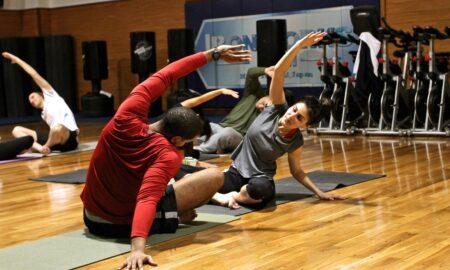Training Frequency
Q: I've been training on Mentzer's 'Ideal Routine' as outlined in your book High Intensity Training the Mike Mentzer Way, following most of Mike's Heavy Duty concepts. My progress was steady up to a point, but now I seem stale and am chronically tired. I'm doing approximately two work sets per bodypart and training once out of every four days. Maybe I need more work to renew my progress, but I'm afraid to add any more sets or days of training per week, as I'm already tired much of the time. What's the solution?
A: It sounds to me as if you're overtraining. You're only performing two work sets per bodypart, and each set is extremely intense, which definitely will stimulate growth. Even so, if you're training as intensely as you say you are, you're falling into the trap of thinking that the solution to your problem lies in adding more sets. Doing more work will only prevent the growth that you stimulated from manifesting. The following excerpt comes from page 52 of the book:
The tendency among enthusiastic bodybuilders is to add more sets to their workouts, as well as to increase the number of days a week they train. This tendency must be kept in check and avoided at all costs. As a bodybuilder begins to grow larger and stronger as a result of proper training, the likelihood of overtraining looms ever greater because, as the body grows stronger, its ability to generate intensity increases, which, you must keep in mind, places greater stress on the body and thus calls for less training. The majority of bodybuilders do just the opposite: As they progress, they add to the amount, which will slow their progress. This leads to desperation and more irrational thinking.
It is at this point that many will add even more to their workouts, causing an even greater decrease in progress and more desperation. It is a never-ending cycle. From the time a beginner starts training, he has the potential to increase his strength some 300 percent, while his capacity to tolerate exercise or recover from the stress of exercise only improves by 50 percent. As you progress, every effort must be made to increase the intensity of your workout, which will then lead to a corresponding decrease in the amount of time you can engage in such training.
It's not enough to stimulate growth. Once you've stimulated it through high-intensity training, you must then allow it to take place. That requires recovery, which requires time. Your chronic fatigue and less-than-optimal progress are definite signs that you're not allowing enough time to elapse between workouts. Please reread Chapter Seven ('The Fourth Principle: Frequency'), particularly page 56, which addresses the fact that the recovery process can require upward of five days'and then you have to allow still more time to elapse prior to heading back to the gym in order for the growth phase to occur. As Mike says on page 134, 'As you gain muscle and strength, increase the time between workouts to six days, seven days or more.' Each time you increase your strength, you will be making a deeper inroad into your existing recovery ability, which does not keep pace with your size and strength gains, meaning that the stronger you get, the less frequent your exposure to the stress of training must be. Mike once wrote the following:
You must give yourself sufficient time between workouts for two reasons: First, your body must recover and replenish all the resources that were used up during the workout itself; and second, after full recovery has taken place, even more rest is necessary before another training session so that muscle growth can take place (assuming you've trained hard enough in the first place to stimulate growth). Remember, recovery precedes growth, and both take time. If you train again before full recovery takes place, you certainly can't expect yourself to grow. If you allow enough time to elapse between workouts for recovery but not muscle growth, you won't suffer chronic fatigue, but you still won't grow. Obviously, performing more sets or more training sessions per week isn't the answer. More work is rarely the answer.
My advice would be to take a full week off from training to enable your body to fully recover from the effects of your overtraining. When you resume training, stick with the same ideal routine, using the same exercises, the same workout split and the same two high-intensity sets per bodypart, but train once every seven days rather than once every four. And instead of adding useless sets to your workouts, attempt to concentrate more of your energy and effort on the workout you're already using.
Self-confidence
Q: I'm getting ready for my first contest but am plagued with doubts. While I really want to win and am generally optimistic, I can't seem to put a halt to occasional feelings of self-doubt, and I'm afraid they'll prevent me from competing at my best. Do you know any tips that Mike used to help him cultivate the total self-confidence he always exuded?
A: Indeed I do. Mike had great ability to motivate people and to impart certain philosophical or psychological principles that instill confidence. Mike used to say that anyone who tells you he's absolutely certain that he's going to win a contest or that he never experiences any self-doubts is either deluding you or trying to buttress a flagging sense of confidence. As he once said:
It is only natural to be aware of the possibility of losing. The evidence is in the history books: There isn't a champion bodybuilder alive who hasn't lost at least one contest. And a smidgen of self-doubt just may be healthy, since it gives you that added motivation to train even harder. The important thing is to plan your contest preparation carefully and then give yourself over to it 100 percent. If you've given it all you've got, what else could you have done? Be realistic! And if you lose, view it as a learning experience and resolve to do better the next time.
After the contest review your training journal and analyze your training, dieting, aerobics and posing for any possible mistakes. Then correct them. Despite your episodes of self-doubt, continue to cultivate a successful and positive orienting vision. Avoid contact with negative-type people before the contest. Even more important, refrain from making negative statements of your own. Negative thoughts and comments seem to program the individual to behave in a like manner. Think positively, speak positively, and you'll act accordingly.
ALLIn his last work, 'The Integrated Man,' which will be published shortly in the revised version of Heavy Duty Journal that I've been editing with Joanne Sharkey, Mike makes the following point that you would do well to remember:
As I stood there languidly, with my hands in my pockets and head cocked to one side, I entered into a reverie, transported back, back to the moment when I'd made the final decision to 'officially' enter my first contest'the local championship. For days prior to my final decision my characteristic mind-set was seriously impaired. What had been an imperturbable serenity disappeared, supplanted by a ceaseless profusion of thoughts that chaffed my spirit, causing a ceaseless uneasiness. An ominous cloud lined with fear, doubt and uncertainty now obscured my once radiant self-confidence. Day in and day out, without surcease, I was plagued by questions of a nature that was uncharacteristic of my mental makeup: 'Do I suffer some nameless, idiosyncratic deficiency in my overall makeup; something not shared by the others? Do I have what it takes to go through with this? Do I have the genetics required to enter and' at least'not embarrass myself?'As this odious litany continued, it traversed the concrete, culminating in the mystically abstract: 'Perhaps there exists a cosmological conspiracy whose aim is to prevent me from doing my best, from doing what is required to achieve my best-ever muscular condition.'
Seeking to escape this solipsistic torture chamber, I trotted out my favorite bodybuilding book, the one I always went to for inspiration. Finally, I reached one of my favorite passages; it was that point in the book where it stated, 'Everyone'including the top champs'experiences fluctuations in motivation and confidence. Don't be duped into believing that successful individuals possess some mystical endowment and then tear your hair out wondering if you have it. Neither is the high-level motivation'and the associated self-confidence'an accident of birth randomly bestowed upon a blessed few; however, it is, in fact, a trait that can be cultivated by anyone.'
This acted to remind me that mine was a volitional consciousness, that I did indubitably possess voluntary control over my mental contents. Therefore, there was no good reason to continue lacerating myself with the same unnerving, semiconscious palaver. That's all that was required: a few rational ideas to put a halt to my seemingly endless irrational negative doubts and restore peace and calm within my soul. There was a liberation that attended this realization, and now I was back to my old self, no longer hampered by any adventitious doubts concerning the contest. I was ready to pick up the gauntlet. With a redoubtable certitude, I consecrated that moment to my decision to enter, ready to test my mettle, wade through the challenging trenches and embark upon the course of action I knew was necessary'let the chips fall where they may.
Your goal should be self-improvement'not dominating others. If you get yourself into your absolute best condition, you've already won: You've won the contest of self-improvement. Whether someone else (or a group of someone elses, such as judges) think you're the best body on the stage is irrelevant. Are you better than you were before? Are your muscles bigger, fuller, more defined, better proportioned than they were before? If so, then you've won. Getting a trophy is nice, but it's an external reward given by external sources. If it doesn't come from you, of what real value is it? If others give it, others can take it back; if you give it to yourself, it remains with you irretrievably. Again, let us hear from Mike Mentzer on this point:
Even though I lost my first two Mr. Olympia contests, I entered both feeling very confident. At the same time I recognized the fact'though I kept it in the back of my mind'that in something as subjective as a physique contest anything could happen. And what happened at the 1980 Mr. Olympia in Sydney is proof positive of that! I would've liked to have won each of those contests, of course, but I felt victorious in that I made notable improvements in both my physique and presentation each year.
Good luck in your upcoming contest, and be the best you can be.
Heavy Duty for Powerlifters
Q: I'm considering entering a powerlifting meet. I've been using the Heavy Duty training principles in your book High Intensity Training the Mike Mentzer Way with good results, but I was wondering, Should I modify the program in order to better prepare myself for powerlifting competition?
A: The basic principles laid down in Mike's books and courses will work for anyone seeking strength gains, since the requirements are essentially the same as those involved in developing muscular size. You can make some initial strength gains by recruiting more fibers in a given contraction. Beyond that you must make your muscles grow larger if you desire to become stronger, since size and strength are proportional. You might point to a smaller, lesser developed person who can outlift a bigger, more developed man. But remember: You can't accurately compare the strength of two different individuals in this way because individuals are always different; that is, bone lengths vary along with leverage factors, tendon attachments are different and, therefore, alter mechanical elements and other considerations. Mike once addressed this very issue, and his comments are relevant for your particular concerns:
Top champs like Tommy Kono in Olympic lifting and Mike Bridges in powerlifting had to move up through several weight classes as they got stronger because they unavoidably grew bigger. If I were you, I would modify the routine in Heavy Duty by performing fewer preexhaustion supersets and doing more single isolated sets or by combining straight sets with preexhaustion sets.
For example, when doing legs, start with squats and perform two low-rep sets (three to seven reps) with maximal weight and then go on to a preexhaustion cycle. You might also set aside Saturdays for the performance of the squat, bench press and deadlift in rest/pause fashion for two sets and the performance of one auxiliary movement for each lift in negative-only style. A combination of rest/pause and negative-only should produce tremendous gains. Be careful not to do more than I suggested, or you'll burn out.
Editor's note: John Little is the co-author with Mike Mentzer of High Intensity Training the Mike Mentzer Way (New York: McGraw Hill; 2002). Little is now available for phone consultations regarding Mentzer's revolutionary Heavy Duty training system. For information contact Joanne Sharkey at (310) 316-4519, visit www.mikementzer .com, or order any of Mentzer's books at Home-Gym.com.. IM




















You must be logged in to post a comment Login